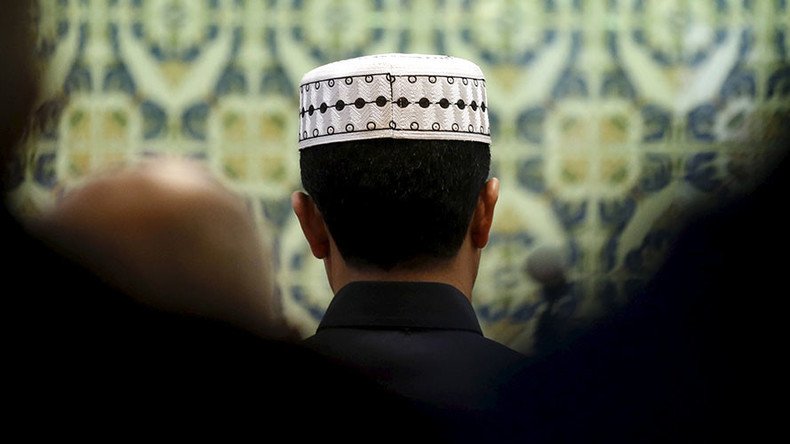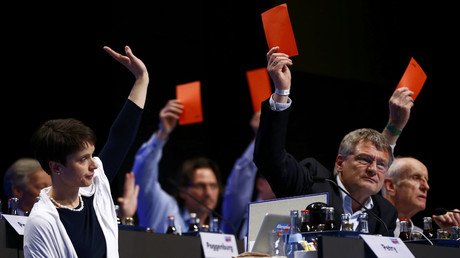Islam does not belong in Germany, 60% agree with AfD

Political rivals may brand the right-wing German party AfD xenophobic for claiming that there is “no place for Islam in Germany” in its political program, but 60 percent of the country's citizens agree with the idea, according to a new poll.
Conducted by the newspaper Bild together with research institute INSA, the poll showed a dramatic change in the attitude of the German population to Islam over the past year. In January 2015, 37 percent of people said that Islam had a place in Germany, but the figure in the latest poll dropped by 15 percentage points to just 22 percent.
The suspicion towards Islam is overwhelming among AfD voters, 92 percent of whom supported their party's stance, but was spread among members of other parties as well. Only supporters of the Green party were more in favor of Islam than against it (42 percent vs 39 percent).
The negative attitude toward the religion does not directly translate into mistrust toward those adhering to it however. Less than 30 percent said they would not like to live alongside Muslim people, while almost half said they were fine with it.
What the attitude toward Islam does appear to reflect is the fear of so-called “Islamization.” Forty-six percent of Germans said they were concerned that their country could be taken over by proponents of political Islam.
The AfD, or Alternative for Germany, adopted its new party program last week, which has an entire section called “Islam is not part of Germany.” Among other things, the party wants to ban the construction of mosques and public wearing of the burqa, the full-cover clothing women wear in some Muslim countries.
Critics accuse AfD of playing the xenophobic card and preying on people's fears. The Council of Muslims in Germany has compared the party's ideas to Nazi ideology. Still, the AfD won elections in three regions recently.
Germany is among the European countries hit hardest by the ongoing refugee crisis. Last year, over 1 million asylum seekers arrived in the country from the Middle East. Chancellor Angela Merkel's government declared an open door policy towards refugees, but as problems and costs associated with the inflow of impoverished foreigners started to escalate, the EU sought help from Turkey to curb and reverse the inflow. Brussels promised financial aid and political concessions to Ankara in exchange for halting the flow of refugees and agreeing to take back those whom the Europeans want to deport.













